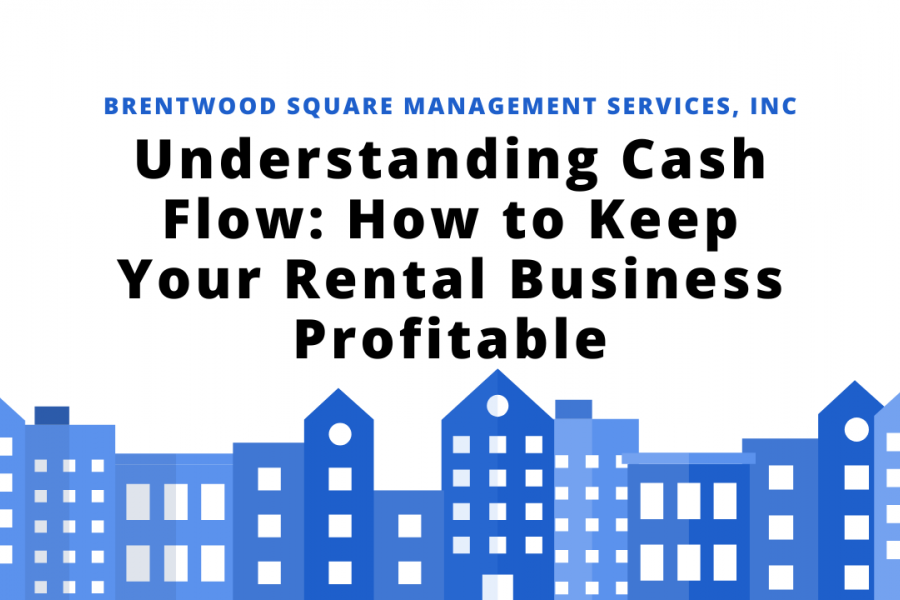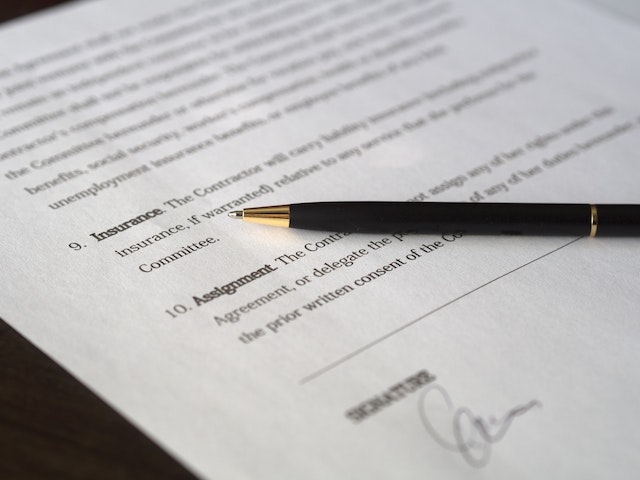
- Prioritize Positive Cash Flow: Ensure that your rental income exceeds all operating expenses—including maintenance, taxes, and insurance—to achieve and maintain a positive net cash flow.
- Understand Your Market: Research local market conditions, including rent control laws and demand trends, to set competitive rental rates and identify properties with strong income potential.
- Choose the Right Property Type: Consider investing in multi-family units or properties suitable for short-term rentals, as these can offer higher income streams compared to single-family homes.
- Monitor and Manage Expenses: Keep a close eye on all costs, including unexpected repairs and vacancies, to prevent them from eroding your profits and to maintain financial stability.
At Brentwood Square Management Services, Inc., we understand that success in rental property investing depends on more than just finding tenants. It relies on strong financial habits, starting with a clear understanding of cash flow.
For property investors and landlords, understanding cash flow dynamics stands as the cornerstone of building a profitable rental portfolio. This financial metric serves as your compass, guiding investment decisions, finding great tenants, and revealing which properties deliver the strongest returns on your capital. Keep reading to learn more!
Learn how we can help you maximize your home’s potential.
Understanding Cash Flow Fundamentals
Cash flow in real estate investing represents the money remaining in your pocket after accounting for all property-related income and expenses.
Think of it as your investment's breathing room, the financial cushion that determines whether your property works for you or against you.
Property investors encounter two distinct cash flow categories:
- Gross cash flow encompasses every dollar flowing into your investment, including monthly rent payments, late payment penalties, and tenant application fees. This figure represents your property's total earning potential before any deductions.
- Net cash flow reveals your true profit after subtracting operational costs like maintenance, property taxes, insurance premiums, and unexpected repairs. This bottom-line figure determines your investment's actual performance.
The greater your net cash flow, the more financial flexibility you possess for future investments, property improvements, or handling unexpected maintenance issues like appliance failures or interior renovations. Strong cash flow also makes it easier to stay current on your mortgage and avoid financial strain during slower rental periods.
The Cash Flow Calculation Formula
The fundamental equation remains straightforward:
Net Cash Flow = Total Property Income - All Operating Expenses

When your income surpasses expenses, you achieve positive cash flow, the holy grail of rental investing. Conversely, negative cash flow signals that your property costs exceed its income, potentially requiring a strategic reassessment of your investment approach.
Benchmarks for Strong Cash Flow Performance
While any positive cash flow beats losing money, savvy investors target specific return thresholds. A cash return reaching 10% or higher typically indicates exceptional performance, while 8% represents a solid, average return that most investors find acceptable.
However, several variables influence what constitutes strong cash flow for your specific situation:
Geographic Factors
Your property's location dramatically impacts earning potential. Areas with rent control legislation may cap your income growth, while markets with high demand and limited supply often support premium rents. Research local market conditions, employment trends, and population growth to gauge your area's cash flow potential.
Property Categories and Investment Scale
Different property types generate varying cash flow levels. Multi-family buildings typically outperform single-family homes due to multiple income streams from several tenants. Higher-priced properties often produce greater absolute cash flow numbers, though the percentage returns may vary.
Rental Approach Strategy
Short-term rentals can often command higher nightly rates than long-term leases. However, they require more time, upkeep, and active involvement from property owners. Additionally, income can fluctuate due to seasonality and local regulations.

In contrast, long-term rentals offer consistent income with less hands-on management. They provide stability and fewer vacancies, making them well-suited for investors seeking reliable, passive returns.
Expense Categories That Impact Your Bottom Line
Smart investors anticipate the full spectrum of costs that can erode their cash flow. Common expenses include:
Learn how we can help you maximize your home’s potential.
Operational Costs
Vacancy periods, uncollected rent, leasing commissions, and professional property management fees consume significant portions of rental income.
Maintenance and Repairs
Regular upkeep, emergency repairs, property upgrades, and appliance replacements represent ongoing financial commitments.
Utility and Service Expenses
Depending on your lease structure, you may cover utilities, HOA fees, special assessments, or business licensing costs.
Insurance and Tax Obligations
Property insurance, landlord liability coverage, and various taxes protect your investment but reduce immediate cash flow, especially during tax season when expenses often add up.
Travel and Administrative Costs
Remote property owners face additional expenses for property visits and management coordination.
Proven Tactics for Maximizing Cash Flow
Successful investors employ strategic approaches to optimize their properties' financial performance:
Strategic Rent Pricing
Establish rental rates by thoroughly analyzing all property-related expenses, including mortgage payments, taxes, insurance, and anticipated maintenance costs.
Financial experts recommend reserving 1% of your property's value annually for maintenance and repairs. This creates a financial buffer for unexpected issues while ensuring your rent covers all costs plus profit margins.

Comprehensive Lease Documentation
Detailed lease agreements protect your income stream by clearly outlining tenant responsibilities for property damage beyond normal use.
Include specific penalties for late payments, contract violations, and additional fees for pets or premium services. Well-structured leases minimize disputes and preserve steady income flow.
Efficient Vacancy Management
Empty units represent pure financial loss, making quick tenant placement crucial. Deploy multi-channel marketing strategies across online platforms, social media, and traditional advertising methods. Consider offering referral bonuses or time-limited incentives to accelerate tenant placement and minimize vacancy rates, reducing income interruption.
Strategic Property Enhancement
Regular improvements not only attract quality tenants but justify premium rents. Focus on upgrades delivering strong returns, such as energy-efficient appliances, enhanced curb appeal through landscaping, and interior updates like fresh paint or modern flooring. Well-maintained properties experience fewer tenant complaints and costly emergency repairs while commanding higher rental rates.
Building Long-Term Success
Sustainable cash flow forms the foundation of successful real estate investing, enabling you to cover expenses, service debt, and fund portfolio expansion. While 8% returns provide acceptable performance, targeting 10% or higher creates more opportunities for growth and wealth building.
Consider partnering with professional property management companies to streamline operations and maximize profitability. Expert management can reduce vacancy periods, handle maintenance efficiently, and optimize rental pricing, which can all contribute to stronger cash flow performance.
Remember that cash flow analysis isn't a one-time calculation but an ongoing process requiring regular monitoring and adjustment. Market conditions change, expenses fluctuate, and opportunities emerge for those who stay actively engaged with their investments' financial performance.
By mastering cash flow fundamentals and implementing proven optimization strategies, you'll build a rental portfolio that generates consistent income while appreciating in value over time.
Bottom Line
Don't let poor cash flow management limit your investment potential. Whether you're struggling with negative cash flow, dealing with frequent vacancies, or simply want to optimize your current returns, professional property management can transform your investment performance.
Contact our experienced property management team to schedule your consultation and discover how we can boost your cash flow. Call us at Brentwood Square Management Services, Inc. today!
